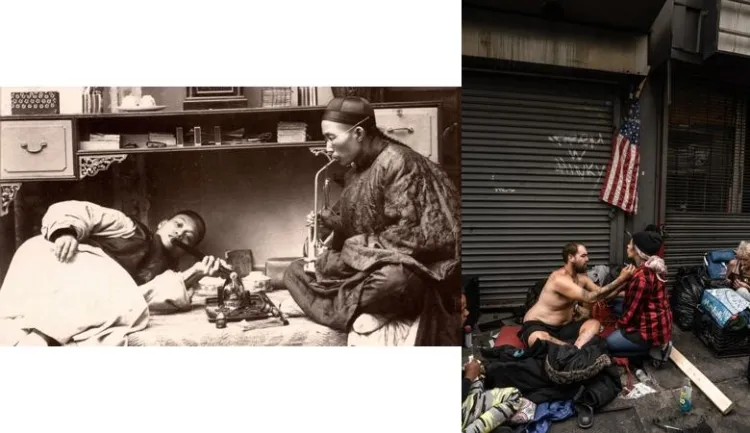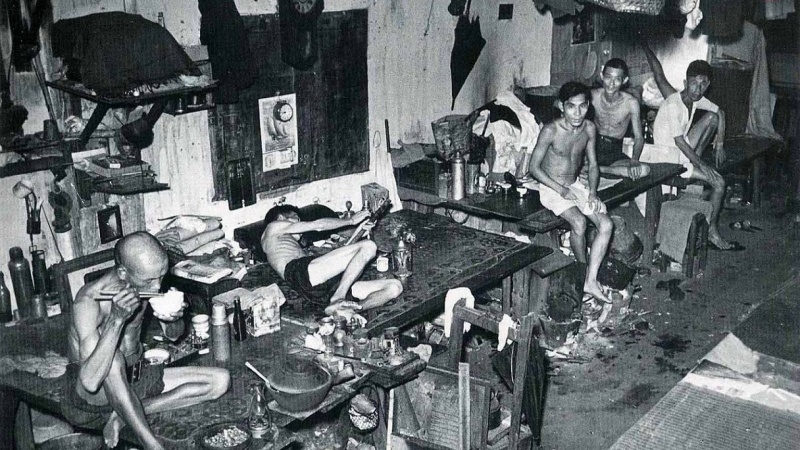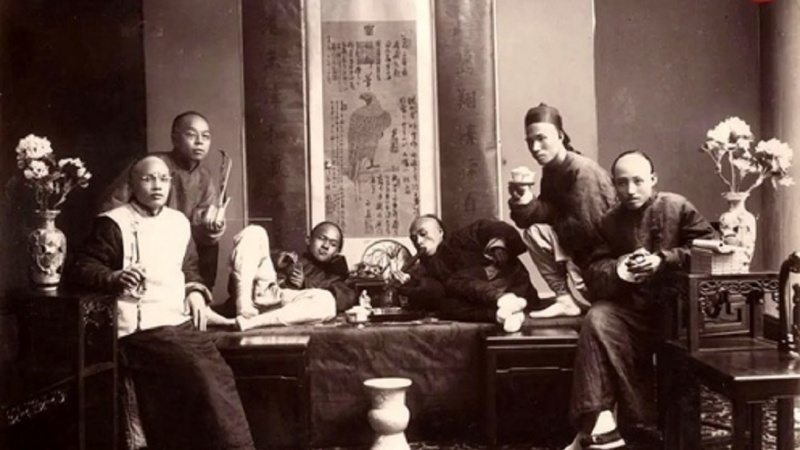From Opium Wars to the Modern Drug Crisis: The Irony of History
History often repeats itself in ways that feel like poetic justice. In the 19th century, Western powers, particularly Britain and the United States, forced opium onto China, devastating its society and weakening its empire. Now, in a dark twist of fate, these same Western nations are facing their own opioid crisis, with China playing a key role in the global fentanyl trade.

The Opium Wars: When the West Poisoned China

The Opium Wars (1839–1860) were a dark chapter in history when Britain and later France waged war on China to force it to accept the opium trade. The goal? To exploit China’s wealth while keeping its population addicted.

How the British Used Opium to Control China
- The British grew opium in their colonies and shipped it to China.
- When China’s Qing Dynasty tried to ban opium imports, Britain retaliated with war.
- The Treaty of Nanjing (1842) and the Treaty of Tianjin (1858) forced China to allow opium trade, hand over Hong Kong, and open its ports to Western powers.
The Aftermath: A Broken Nation
- Millions of Chinese citizens became opium addicts, leading to economic collapse and social decline.
- China lost sovereignty, becoming dominated by foreign powers for decades.
- The once-powerful Qing Dynasty fell, leading to China’s eventual revolution and rise as a modern power.
The Irony: China Was Once the Victim

Back then, China was helpless against Western manipulation. Today, however, it is the United States and the United Kingdom that are struggling with mass drug addiction, much like China did in the 19th century.
The Modern Opioid Crisis: The West’s Fall into Addiction
A New Epidemic: Opioids in the U.S. and U.K.
The opioid crisis of today mirrors China’s opium epidemic from the past. This crisis has been driven by three major factors:
-
Pharmaceutical Overprescription (1990s–2000s)
- Drug companies like Purdue Pharma aggressively marketed opioid painkillers (OxyContin, Vicodin, Percocet) as “non-addictive.”
- Doctors overprescribed opioids, leading to widespread dependency.

-
The Rise of Heroin (2010s)
- When authorities cracked down on prescription opioids, addicts turned to heroin, a cheaper and more accessible alternative.
- Mexican drug cartels flooded the U.S. with high-purity heroin.
-
The Fentanyl Explosion (2020s)
- Fentanyl, a synthetic opioid 50 times stronger than heroin, became the leading cause of overdose deaths.
- China is the primary producer of fentanyl precursors, which are shipped to Mexican cartels and processed into lethal drugs.
- Today, fentanyl kills over 70,000 Americans per year—an epidemic worse than anything seen before.
Poetic Justice: The West Now Suffers What It Once Inflicted
In the 19th century, Britain and the U.S. forced opium onto China, destroying millions of lives. Now, fentanyl is flowing into their own societies, leading to mass addiction and societal collapse.
The same greed and carelessness that once fueled the opium trade is now destroying the very nations that once profited from it.
China’s Role in the Modern Drug Trade
While China was once the victim, it is now a key player in the modern drug crisis, especially in the fentanyl trade.
1. Fentanyl and Chemical Exports
- China is the world’s largest producer of fentanyl precursors, which are shipped to Mexican cartels.
- These cartels process the chemicals into deadly fentanyl, which is then smuggled into the U.S. and other countries.
- Fentanyl is so powerful that just a few milligrams can cause an overdose.
2. Loopholes in Chinese Regulations
- China has banned some fentanyl analogs, but drug manufacturers constantly modify chemical formulas to escape regulation.
- Many Chinese companies continue producing fentanyl precursors, despite international pressure.
3. A Silent War?

- The U.S. has accused China of weaponizing fentanyl, comparing it to how Britain used opium against China in the 19th century.
- Some believe that China is using fentanyl as a form of economic warfare, though China denies any wrongdoing.
The Ultimate Irony: China, Once a Victim, Now Enables Addiction
The West once weakened China through opium—now China is linked to the fentanyl crisis that is destroying the West.
The Cycle of History: Lessons from the Past
The historical irony is undeniable:
- The West once poisoned China with opium. Now, fentanyl from China is poisoning the West.
- China, once crippled by drug addiction, has now risen as a global power, while the U.S. and U.K. struggle with mass addiction.
- What was once used as a tool of imperialism has become a new weapon of destruction.
Can the Cycle Be Broken?
To prevent history from repeating itself in new ways, global powers must take strong action against drug production and trafficking:
- The U.S. and other Western nations must crack down on fentanyl distribution and improve addiction treatment.
- China must do more to regulate fentanyl production and stop exports to drug cartels.
- International cooperation is needed to stop synthetic opioid trafficking.
Final Thoughts: History’s Reckoning
The story of opium and opioids is a lesson in greed, addiction, and historical justice. The nations that once forced drugs onto others are now paying the price for their past actions.
The question remains:
Will the West and China learn from history, or will they continue to repeat its darkest mistakes?
What's Your Reaction?

















